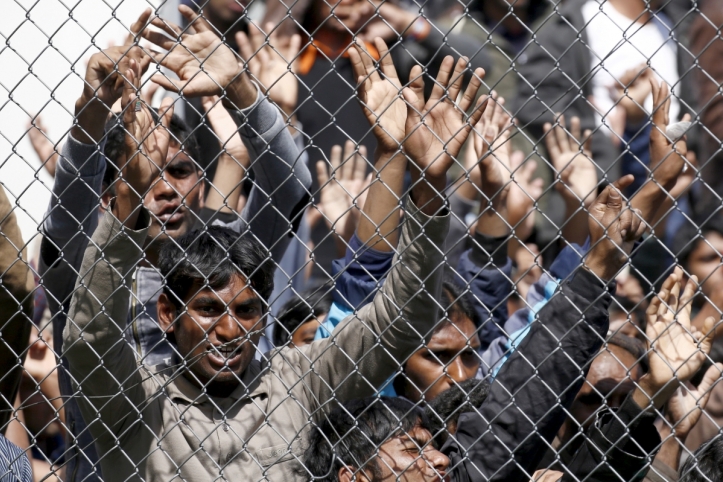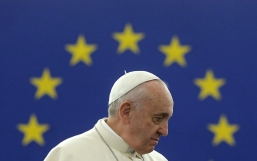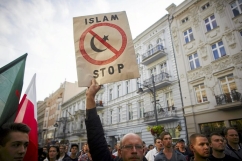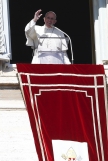Pope Francis is to visit Lesbos in Greece next week in a visit that is certain to add pressure on leaders in Europe as the controversial agreement to send migrants back to Turkey was called to a temporary halt today.
The Pope will visit Lesbos with Ecumenical Patriarch Bartholomew I, Archbishop of Constantinople and head of the Eastern Orthodox Church. The Pope and the Patriarch have become good friends and allies since they met on a pilgrimage to Bethlehem in 2014.
Pope Francis has strong views on the refugee crisis and in his Easter homily, criticised their rejection by the EU. In February he visited the US-Mexico border, and has openly cofronted anti-immigration views such as those of Donald Trump.
"The Greek government will welcome Pope Francis and the Ecumenical Patriarch Bartholomew as valuable defenders of support to refugees," a government source told the Mail. "Greek Prime Minister Alexis Tsipras will go with them to the island of Lesbos."
Lesbos is at the frontline of the refugee crisis.
The Lesbos deportations were stopped today after thousands of those who are being detained claimed asylum. Many arrived after risking their lives to make the crossing from Turkey by boat.
The Greek Orthodox Church gave the go-ahead to the visit, only just arranged, after Pope Francis said he wanted "to shed light on the major humanitarian problem" presented by the crisis.
Two hundred migrants were deported on Monday but the removals stopped today as a protest took place at Lesbos, with one migrant even threatening to hang himself. It is understood a further attempt will be made tomorrow.
On nearby Samos 100 migrants have gone on hunger strike, angry that they face being returned to Turkey or applying for asylum in Greece when they risked their lives to get to Europe.
For every Syrian refugee returned, one will be resettled in the European Union, up to a maximum of 72,000. Amnesty has described the deal as a "dark day for humanity".
The Pope is consciously trying to see what he can do to help, in light of the fact that many refugees are children and the UN has voiced fears about conditions on Lesbos.
The Financial Times reported: "Some EU diplomats see the papal activism on refugees as an important counterpoint to populist anti-immigrant voices in Europe. Even so the papal visit to Lesbos next week comes at a vulnerable moment for the EU, a club built on idealism that is unused to the blunt criticism it is facing from aid agencies and charities over migration."



















